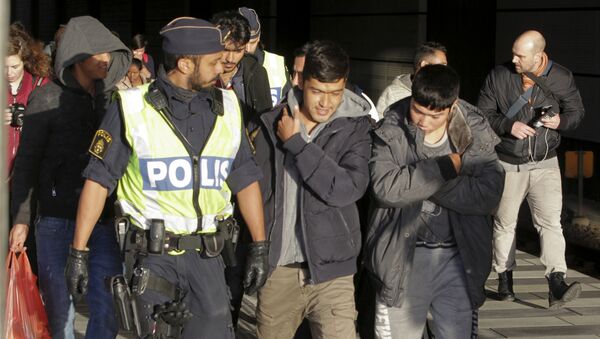Investigative research conducted by Anna Holgersson at Umea University in northern Sweden has revealed that the country's police don't consider themselves to be sufficiently prepared to confront a terrorist attack on home soil. In her study, she analyzed data from Sweden's Bureau of Statistics, which had quizzed over 850 police, ambulance and fire service workers about how they regarded their own ability to deal with a realistic terrorist attack.
More than 60 percent of those questioned said they doubted the outcome would be positive, with police officers leading among the unbelievers.
"The results show that the professionals tasked with responding to a disaster scenario feel that they lack both the necessary knowledge and resources to deal with the consequences of a possible attack," Holgersson told the Swedish newspaper Svenska Dagbladet, noting that further research is needed. According to Holgersson, only a small number of policemen have actual experience dealing with terrorist attacks.
However, Lina Nitz, president of Sweden's police union, said she was not surprised by the low level of self-confidence among the staff.
"We need more police officers, there is the key issue. And the force lacks both training and the practice to be able to deal with the worst kind of scenarios," she said.
She also deplored the fact that ongoing training is generally neglected due to cutbacks in connection with savings measures.
Over the recent years, the Swedish police force has been losing personnel at an alarming rate, whereas the supply of recently-graduated rookie cops has been unable to plug the hole.
Last year alone, 832 policemen chose to pack it in and submit their badges, while the number of newly hired only amounted to 646, reports Dagens Nyheter.
"We take the situation seriously and keep track of our progress month by month," said police personnel director Kajsa Moller, who also ensured that there is no reason for panic.
However, the figures don't tally for Lina Nitz of Sweden's police union.
"It is naive and nonchalant. We already have severe police shortages throughout Sweden and it is necessary to take urgent measures," she insists.
"It takes a long time to train a police officer, but even longer to get yourself an experienced and skilled one. What is needed is to upgrade the police force and change the personnel policy in order to stop the brain drain and preferably also bring back those who have already left, says Lena Nitz, pointing out the salary is the most important factor.
Many of those who left the force regard the current police routine as too demanding, with crime rates skyrocketing in line with the influx of refugees from the third world. Many believe the prestige associated with police work has also plummeted because of new "dirty work" guarding refugee accommodations across the country, which police are expected to perform.




